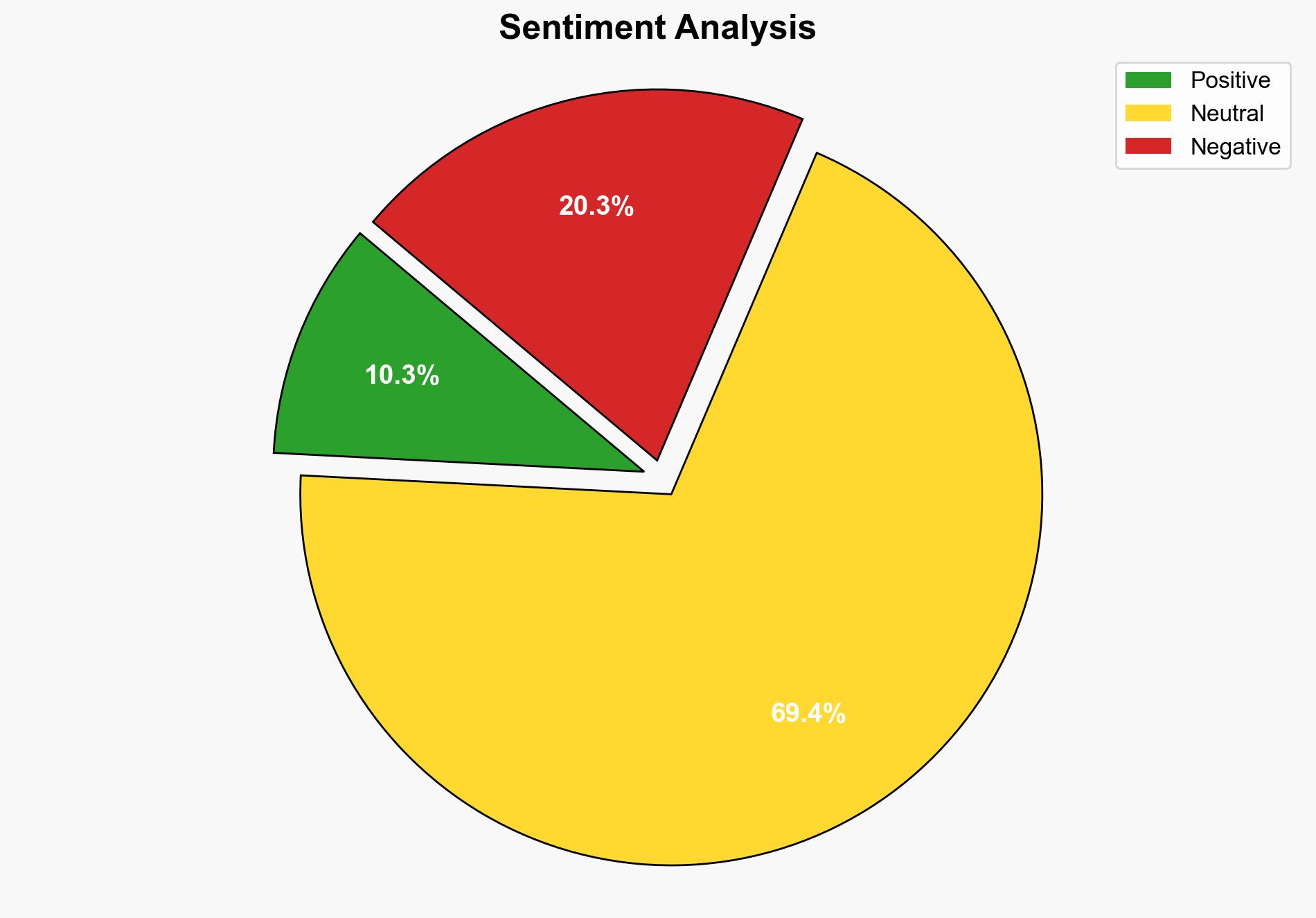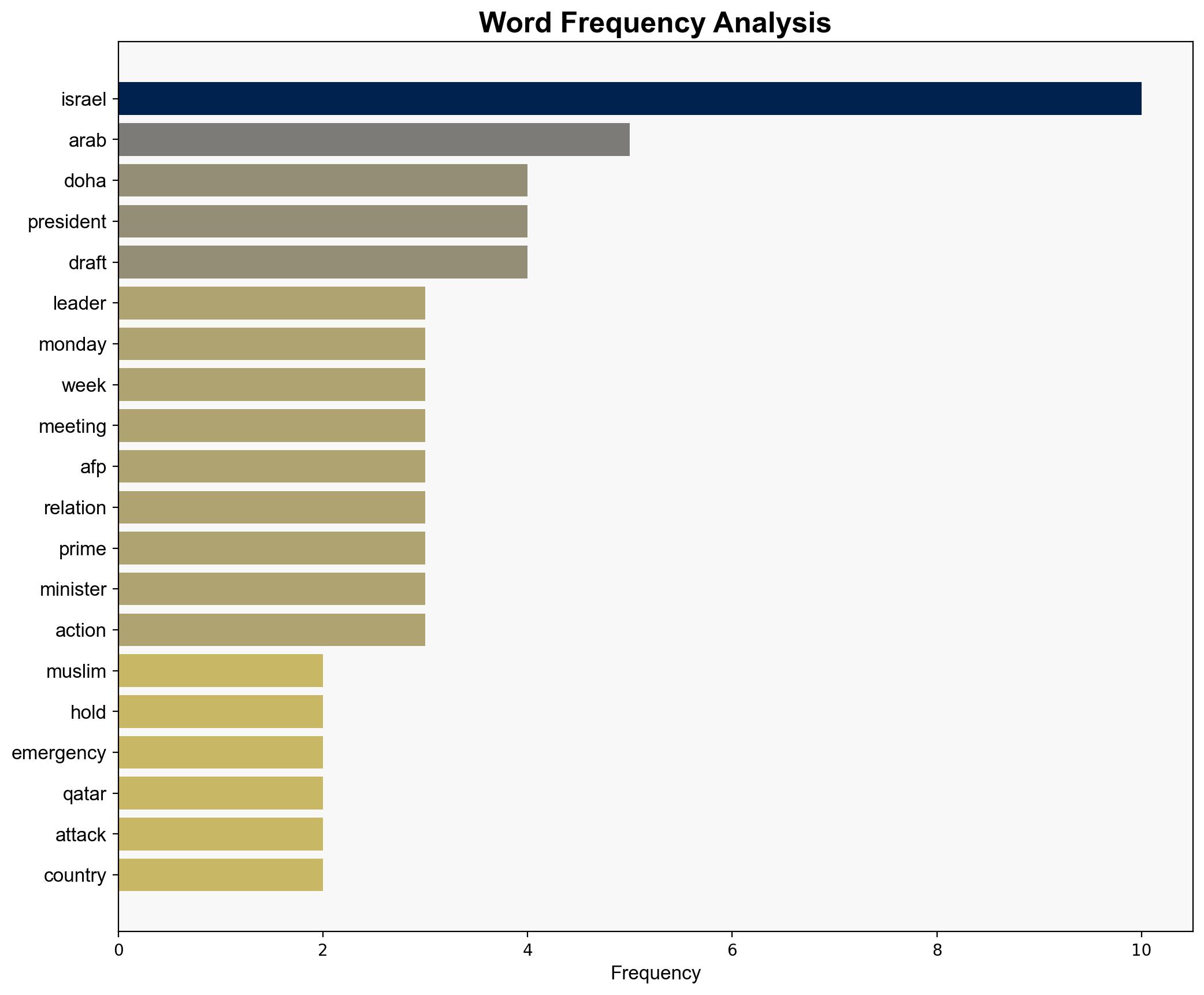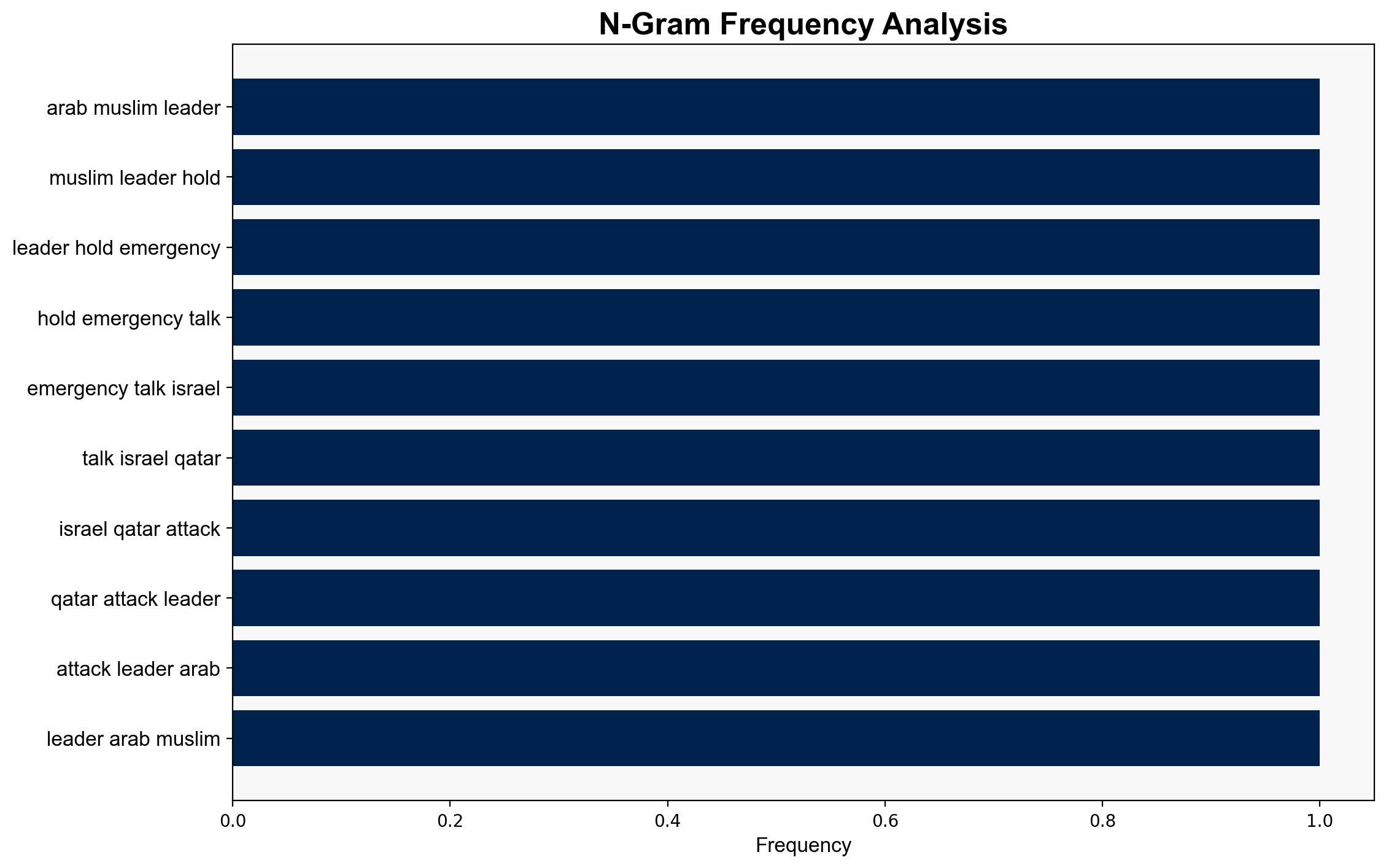Arab Muslim Leaders Hold Emergency Talks After Israel’s Qatar Attack – International Business Times
Published on: 2025-09-15
Intelligence Report: Arab Muslim Leaders Hold Emergency Talks After Israel’s Qatar Attack – International Business Times
1. BLUF (Bottom Line Up Front)
The most supported hypothesis is that the emergency talks among Arab Muslim leaders aim to consolidate a unified regional stance against Israel’s actions in Qatar, potentially leading to increased diplomatic pressure and a reevaluation of existing normalization agreements. Confidence level: Moderate. Recommended action: Monitor diplomatic communications and shifts in regional alliances closely, while preparing for potential escalations in rhetoric and actions.
2. Competing Hypotheses
Hypothesis 1: The emergency talks are primarily a symbolic gesture to express collective outrage and solidarity without leading to substantial policy changes or actions against Israel. This hypothesis suggests that the leaders are leveraging the situation to strengthen internal political standing and regional influence.
Hypothesis 2: The talks are a precursor to coordinated diplomatic and economic actions against Israel, potentially including efforts to suspend or renegotiate normalization agreements under the Abraham Accords. This hypothesis implies a strategic shift in regional alliances and increased pressure on Israel and its allies.
3. Key Assumptions and Red Flags
Assumptions:
– Hypothesis 1 assumes that the leaders prioritize internal political stability over external confrontation.
– Hypothesis 2 assumes a willingness and capability among Arab states to take collective action against Israel.
Red Flags:
– The presence of high-profile leaders like Recep Tayyip Erdogan and Masoud Pezeshkian suggests potential for more than symbolic action.
– The absence of explicit commitments or actions in the draft statement may indicate a lack of consensus or strategic ambiguity.
4. Implications and Strategic Risks
The emergency talks could lead to increased regional tensions and a potential realignment of alliances, impacting economic and security dynamics. There is a risk of escalation if diplomatic efforts fail, potentially affecting global energy markets and increasing cyber threats. The rhetoric of “genocide” and “ethnic cleansing” could inflame public sentiment, leading to protests or unrest.
5. Recommendations and Outlook
- Enhance intelligence collection on diplomatic communications and regional military movements.
- Engage in diplomatic dialogues to de-escalate tensions and promote conflict resolution mechanisms.
- Scenario Projections:
- Best Case: Talks lead to renewed diplomatic engagement and conflict resolution initiatives.
- Worst Case: Breakdown in talks results in regional conflict and disruption of global energy supplies.
- Most Likely: Continued diplomatic pressure with limited immediate action, maintaining the status quo.
6. Key Individuals and Entities
– Recep Tayyip Erdogan
– Masoud Pezeshkian
– Mohammed Shia al-Sudani
– Mahmud Abbas
– Abdullah II
– Shehbaz Sharif
– Marco Rubio
– Benjamin Netanyahu
– Aziz Algashian
7. Thematic Tags
national security threats, cybersecurity, counter-terrorism, regional focus





